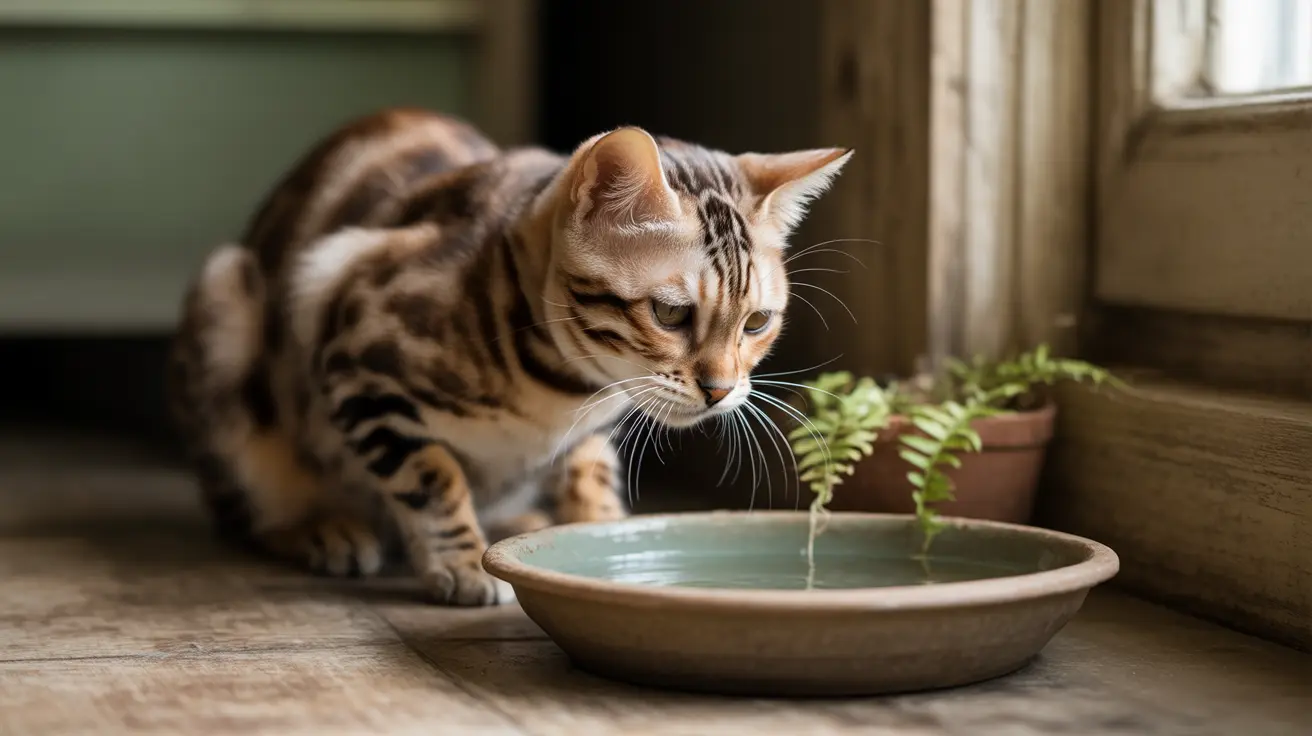When it comes to kidney failure in cats, understanding how this condition affects various aspects of their health, including their eyes, is crucial for early detection and treatment. As a progressive disease that impacts multiple body systems, kidney failure can manifest in various ways, with eye-related symptoms often indicating advanced stages of the condition.
In this comprehensive guide, we'll explore the connection between kidney failure and eye health in cats, along with other important symptoms that pet owners should watch for. Early recognition of these signs can make a significant difference in managing the condition and improving your cat's quality of life.
The Connection Between Kidney Disease and Eye Health
Kidney failure can significantly impact a cat's eye health through various mechanisms. The most common connection is through hypertension (high blood pressure), which often develops as kidney function declines. When blood pressure becomes elevated, it can damage the delicate blood vessels in the retina, potentially leading to sudden blindness or other vision problems.
Additionally, severe dehydration from kidney disease can cause cats' eyes to appear sunken, which is often one of the more visible signs of the condition's progression.
Early Warning Signs of Kidney Failure
Before eye-related symptoms develop, cats typically show several early warning signs of kidney disease:
- Increased thirst and urination
- Changes in appetite
- Weight loss
- Lethargy
- Bad breath with a distinctive ammonia-like odor
- Changes in coat quality
Advanced Symptoms and Eye Complications
As kidney disease progresses, cats may develop more severe symptoms, including significant eye-related issues:
- Sunken eyes due to chronic dehydration
- Sudden vision changes or blindness
- Dilated pupils that don't respond normally to light
- Retinal detachment
- Blood vessel damage in the eyes
Diagnosis and Monitoring
Veterinarians use various methods to diagnose kidney failure and monitor its effects on eye health:
- Blood tests to check kidney values
- Blood pressure measurements
- Comprehensive eye examinations
- Urine analysis
- Regular monitoring of retinal health
Treatment Approaches
Managing kidney failure and its effects on eye health requires a multi-faceted approach:
- Blood pressure medication to protect eye health
- Fluid therapy to prevent dehydration
- Dietary modifications
- Regular monitoring of eye health
- Specific treatments for eye-related complications
- Supplements to support overall kidney function
Preventive Measures
While not all cases of kidney failure can be prevented, certain steps can help protect your cat's kidney and eye health:
- Regular veterinary check-ups
- Maintaining proper hydration
- Feeding appropriate diet
- Monitoring blood pressure
- Quick response to any changes in eye appearance or vision
Frequently Asked Questions
What are the early signs of kidney failure in cats, and how do they affect eye health?
Early signs of kidney failure typically include increased thirst and urination, while eye-related symptoms usually appear in later stages. Initial eye changes might include slight dullness or minimal changes in appearance, but these can progress to more serious issues if left untreated.
Can kidney failure in cats cause blindness, and if so, what are the symptoms?
Yes, kidney failure can cause blindness in cats, primarily due to high blood pressure damaging the retina. Symptoms include dilated pupils, bumping into objects, reluctance to jump, and sudden changes in vision. This condition requires immediate veterinary attention.
How does high blood pressure from kidney disease affect a cat's eyes?
High blood pressure from kidney disease can damage the blood vessels in the retina, potentially leading to retinal detachment or hemorrhage. This damage can cause sudden blindness and requires emergency treatment to prevent permanent vision loss.
What should I do if I notice sunken eyes or vision changes in my cat related to kidney issues?
If you notice any changes in your cat's eyes or vision, seek immediate veterinary care. These symptoms could indicate severe dehydration or complications from kidney disease that require prompt medical intervention.
Can kidney failure be managed to prevent eye complications in cats, and what treatments are available?
Yes, proper management of kidney failure can help prevent or minimize eye complications. Treatments include blood pressure medication, fluid therapy, dietary changes, and regular monitoring of both kidney function and eye health.
Conclusion
Understanding the relationship between kidney failure and eye health in cats is crucial for providing optimal care. By recognizing early warning signs and seeking prompt veterinary attention, you can help manage the condition and protect your cat's vision. Regular monitoring and appropriate treatment can significantly improve your cat's quality of life and help prevent serious complications.






